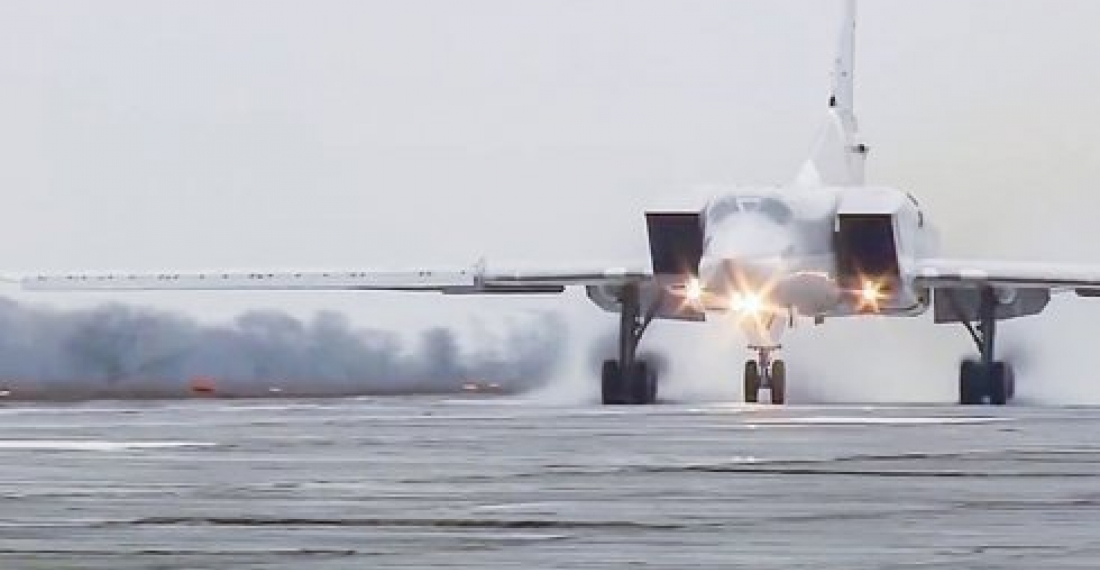A controversy has erupted in Iran following reports that Russian military planes were using Iranian bases to launch attacks against Islamist groups in Syria. On Tuesday, the Russian Defense Ministry announced that its Tu-22M3 long-range bombers and Su-34 tactical bombers were launching sorties over Syria from the Hamadan air base.
An Iranian senior parliamentarian said that the sorties were authorised by Iran's Supreme National Security Council within the quadrilateral cooperation framework between Iran, Russia, Iraq, and Syria. Alaeddin Boroujerdi, head of the parliamentary committee for national security and foreign policy stressed that Iran only provides fueling services to the Russian squadron in the Iranian airbase and this is in line with the anti-terrorism cooperation between the two countries.
According to the Tehran Times other Iranian officials, including Supreme National Security Council Secretary Ali Shamkhani, have backed the decision, seeing it as an indication of a strategic alliance between Tehran and Moscow.
Iran and Russia "enjoy strategic cooperation in the fight against terrorism in Syria, and share their facilities and capacities to this end," Shamkhani noted.
Former Iranian foreign minister Ali Akbar Velayati also deemed the military synergy as the beginning of a new approach to the Eastern bloc by Tehran. "Having strategic relations necessitates cooperation such as counterterrorism activities," said Velayati, who currently acts the top advisor to the Iranian Supreme Leader.
"The approach to the East does necessitate some components, including having strategic relations with countries such as Russia and China," explained Velayati.
However the decision has been criticised by other Iranian politicians who claim that it is in breach of the Iranian constitution which says that no foreign army is allowed deployment on Iranian soil even for peaceful purposes. Heshmatollah Falahatpisheh, a member of the national security committee of the parliament said that the deployment was in breech of article 146 of the constitution. The objection drew an explanation from Iranian Parliament Speaker Ali Larijani. "Under Article 146 of the Constitution, the establishment of any foreign military base inside the country is forbidden, and it is worth mentioning that Iran has not given such a base to any country," Larijani stated. The difference has to do more with different possible interpretations of the constitutional principle, which distinguishes deployment from establishment.
While it allows no permanent or temporary establishment of military bases on Iranian territory, it allows for deployment of foreign forces depending on approval of the SNSC.
Larijani further said Iran is cooperating militarily with Russia as an ally in the Middle East and this does not mean that Iran is giving Russia a military base. "Iran has cooperation with Russia because of a terrorist crisis which has been created by the U.S. and some regional countries." "Our cooperating with Russia on regional issues such as Syria does not mean that we have given a military base to Russia," Larijani remarked.
source: commonspace.eu with Tehran Times
Photo: A Tupolev Tu-22 M3 strategic bomber of the Russian Aerospace Force (archive picture courtesy of the Russian Ministry of Defence)
.






